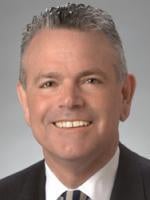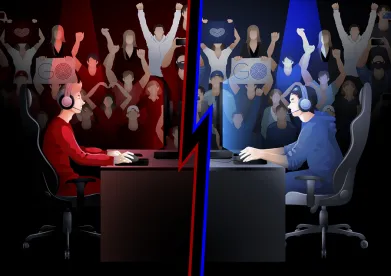This week, the Washington Post reported that a professional sports team in Dallas had released one of its star players for committing multiple violations of the league’s player conduct rules, specifically its rules prohibiting discriminatory behavior or harassment. No, the article was not reporting on another player misconduct case involving the NFL’s Dallas Cowboys; instead, it was focused on the Dallas Fuel, a team in the nascent Overwatch League, a professional esports league in which its teams, comprised of expert video gamers, participate in a seasonal competition involving the popular “Overwatch” multi-player video game. Video gamers: Welcome to the professional workplace and the employment laws and attendant policies that regulate its operation.
In our regular reporting on video gaming and the esports industry, we invariably address the rapid growth, both in spectator and participant interest and in economic investment and opportunity. Video gaming is no longer just some basement or bedroom amusement; it has grown into a global phenomenon in which professional video gamers now compete in leagues and tournaments for prize money or other compensation. While the origin of the term “esports” is difficult to divine, there is no dispute that esports has smashed its way into the entertainment market lexicon, driven by the more than $1 billion in annual global revenues that it is predicted to generate, perhaps as soon as the current year.
While there may be some debate whether video gaming qualifies as a sport, the upper echelons of the esports industry have begun to look more like traditional professional sports leagues as stakeholders move aggressively to monetize opportunities. Video game developers Blizzard Entertainment and Riot Games have launched professional leagues around their respective multi-player game titles – Overwatch and League of Legends – by selling team rights to various “owners” whose teams play against one another in organized seasonal competitions that are presented to spectators live in arenas and/or via network cable or internet streaming broadcasts. Even traditional sports leagues like the NBA and MLS have launched competitive esports leagues around popular video games (NBA 2K and FIFA) that mirror their live action sports.
As in traditional sports, professional esports teams are comprised of real living individual players, who purport to be among the best in the world in their chosen video games. In the context of professional esports, specifically in competitive leagues like Overwatch, these gamers are full-fledged employees of the teams they represent. For the current inaugural Overwatch season, players on average are reportedly earning $80,000 to $120,000 per year, with the terms and conditions of their employment laid out in a formal player contract signed between team and player.
Gamers in these professional esports leagues have yet to unionize and, as a result, the leagues operate without the overlay of collective bargaining agreements that govern player employment in traditional professional sports leagues. Still, teams and their employees, which include players in leagues like Overwatch, are subject to the legal and regulatory framework of labor and employment laws. As in traditional sports, all teams and their personnel are subject to various league rules relating to participation and conduct, some of which are directed at compliance with applicable employment laws. For example, the Overwatch League recently published its Official Rules of Competition and Code of Conduct, which, among other things, requires teams and their personnel to comply with applicable laws and to refrain from “any form of harassment or discrimination.”
As stakeholders move esports into the mainstream, esports leagues, teams, and players are dealing with the growing pains of operating a functional and legally compliant workplace. It is perhaps unsurprising to learn that an Overwatch team recently fired its manager after he was accused of sexually assaulting a female Overwatch streamer. In addition, Overwatch players have been suspended or released from player contracts for engaging in conduct that violates league conduct rules and potentially applicable employment discrimination laws (e.g., making homophobic remarks and using racist emotes). As noted, these reports resemble stories that we have repeatedly seen in recent years involving players in traditional sports leagues.
Establishing and developing a legally compliant workplace within these esports leagues will present challenges. Professional gamers are born from a gaming culture that some view as male-dominated and that has developed in a context in which lone gamers anonymously compete across the internet from their personal computers. That unregulated environment can facilitate behavior or conduct that would be unacceptable and potentially unlawful in a professional workplace. Esports stakeholders, including players, would best learn this quickly, given the rapid development of the esports industry, which will increasingly rely on the traditional workplace rules as a foundation for growth.




 />i
/>i

